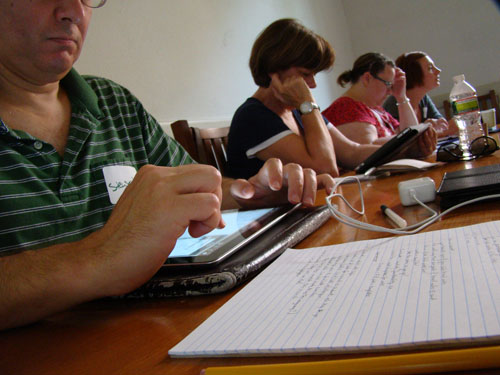
EdTechTeacher will host the first national iPads in education summit, bringing together educators, researchers, tech directors, principals, school leaders and industry partners to identify best practices for integrating iPads into education. The conference will be held from November 6th to 8th at The Joseph B. Martin Conference Center, Harvard Medical School in Boston.
Schools and districts nationwide continue to invest in mobile technologies. The EdTechTeacher iPad Summit hopes to provide educators in this country and overseas with a forum to discuss how to leverage these devices in order to further empower teachers and students as creators of their own learning. “While there are some technical sessions,” explains the EdTechTeacher team, “the focus is on creating effective pedagogy, enriching curriculum, and leveraging the device in order to support students and teachers as innovators.”
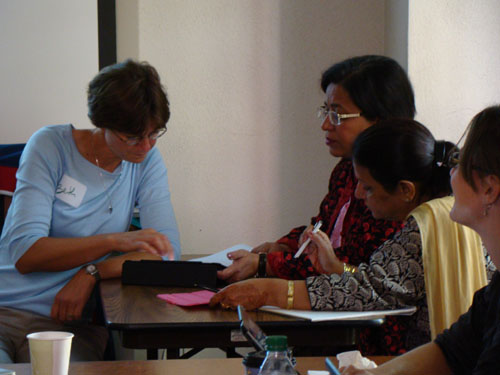
The keynote speaker at the conference is Tony Wagner, Innovation Education Fellow at the Technology & Entrepreneurship Center at Harvard. Wagner, an advocate for the need to better prepare students for 21st-century careers and citizenship, collaborated with noted filmmaker Robert Compton to create the 60 minute documentary, The Finland Phenomenon: Inside the World’s Most Surprising School System. Tony’s latest book, Creating Innovators: The Making of Young People Who Will Change the World (Simon & Schuster), provides a powerful rationale for developing an innovation-driven economy. He explores what parents, teachers, and employers must do to develop the capacities of young people to become innovators. What role can the iPad play in their education? What additional professional development for teachers is needed? What examples of best technology practices can we learn from around the world? Tony agreed to discuss these subjects with me.
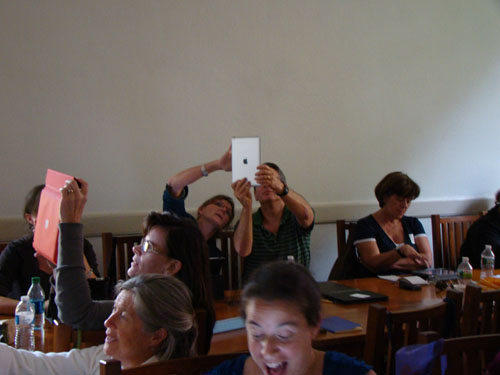
How has the iPad made learning in education more innovative, and how can educators use the iPad to achieve significant innovation in teaching and learning?
First, the iPad has made using most computer-based learning applications far more accessible and intuitive. You no longer need to take students to a special room full of computers for that occasional experience; you don’t need to pull a laptop cart around the school. And students don’t need hours of training to learn how to use the device or its applications. Assuming a decent broadband connection, most computer related work – researching, writing, sharing – can happen at any time and for every student, with little or no advance preparation. Secondly, the comparative ease of creating and distributing an iPad app, versus writing a program for a computer, has given rise to a dramatic increase in the number of education-related applications being created and disseminated. In short, the iPad has enabled greater access for both the education consumer and the creator.
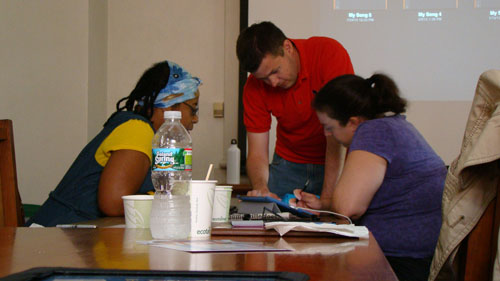
Is the missing link in education technology trained teachers?
Having teachers who are comfortable with the technology and who know how to apply it in the classroom is critical, but that problem will be mostly solved by time. As older teachers retire in growing numbers in the coming years, and many young people who are digital natives come into teaching, I think we will see a much more rapid adoption.
But the real question is: what will this technology will be used for? I toured a school district recently that had, with corporate help, put web-connected white boards and student clickers into every classroom at huge expense. But, in classroom after classroom, what I saw was all of this technology being used for drilling and test prep. Instead of having work sheets on their desks, students had clickers that enabled them to “vote” for the right answer on the practice test. More and better teacher preparation won’t solve this problem. We need assessments of the skills that matter most – like the online test called the College and Work Readiness Assessment, which measures problem-solving, reasoning, and writing skills – to encourage more powerful teaching and learning, both with and without the new technologies.
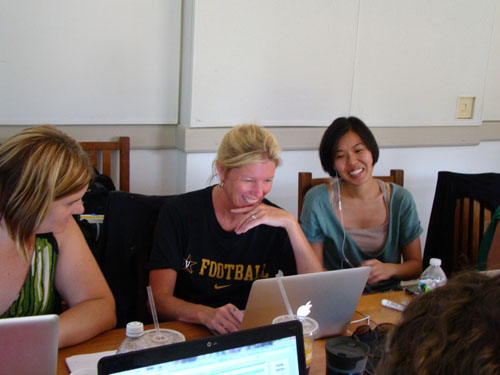
Can you share a couple of examples of good teaching/technology practice that you’ve seen in top education systems around the world, for instance, in Finland?
In Finland, what I saw was much less teacher-centric uses of technologies – I don’t recall seeing a single white board, for example – and much more student-centric technology applications. I saw students using Moodle (the e-learning platform) to share and discuss work. In a marketing class, I saw students discussing how various social networking applications were being used to market products and services. Here in the US, I’ve seen some schools like High Tech High require all students to have digital portfolios that show evidence of progressive mastery of the skills that matter most. I’ve seen virtual dissections in biology classes that teach far more than having to actually cut up a frog. And I’m excited about new software being developed that will enable students to better understand disruptions of complex ecosystems through simulation. Finally, the US Army has developed a wide variety of gaming applications to teach strategy.
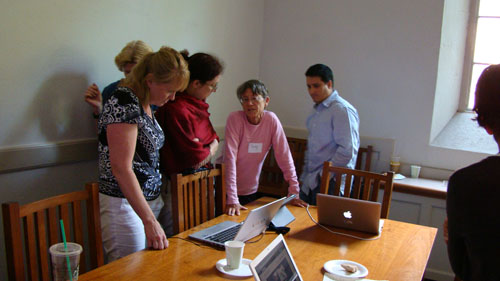
Online education continues to be an ever larger force in how students learn – how far can it go to changing education as we know it?
Knowledge is rapidly becoming a commodity and is increasingly democratized and globalized. You no longer need to be in a classroom to acquire the knowledge you want or need. But in my view, knowledge is only one of the three pillars needed for life-long learning, work, and citizenship in the 21st century. In addition to knowledge, students also need so-called 21c skills, such as those I’ve described in The Global Achievement Gap. Finally, students need the motivations and dispositions that will enable them to innovate – to solve problems creatively – in whatever they do, which I’ve written about most recently in Creating Innovators. They will need to learn to work in teams, understand and solve problems using multiple disciplines, persevere, take risks, and learn from mistakes. They will need to be intrinsically motivated to acquire new knowledge and skills throughout their lives. Developing the skills, habits of mind, and dispositions of an innovator, in my view, requires effective coaching – that is what I think all teachers must strive to become.
For more information: Creating Innovators , EdTechTeacher iPad Summit
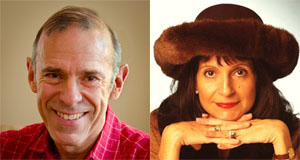
Photos courtesy of EdTechTeacher and Tony Wagner.
In The Global Search for Education, join me and globally renowned thought leaders including Sir Michael Barber (UK), Dr. Michael Block (U.S.), Dr. Leon Botstein (U.S.), Professor Clay Christensen (U.S.), Dr. Linda Darling-Hammond (U.S.), Dr. Madhav Chavan (India), Professor Michael Fullan (Canada), Professor Howard Gardner (U.S.), Professor Andy Hargreaves (U.S.), Professor Yvonne Hellman (The Netherlands), Professor Kristin Helstad (Norway), Jean Hendrickson (U.S.), Professor Rose Hipkins (New Zealand), Professor Cornelia Hoogland (Canada), Mme. Chantal Kaufmann (Belgium), Dr. Eija Kauppinen (Finland), State Secretary Tapio Kosunen (Finland), Professor Dominique Lafontaine (Belgium), Professor Hugh Lauder (UK), Professor Ben Levin (Canada), Lord Ken Macdonald (UK), Professor Barry McGaw (Australia), Shiv Nadar (India), Professor R. Natarajan (India), Dr. Pak Tee Ng (Singapore), Dr. Denise Pope (US), Sridhar Rajagopalan (India), Dr. Diane Ravitch (U.S.), Richard Wilson Riley (U.S.), Sir Ken Robinson (UK), Professor Pasi Sahlberg (Finland), Andreas Schleicher (PISA, OECD), Dr. Anthony Seldon (UK), Dr. David Shaffer (U.S.), Dr. Kirsten Sivesind (Norway), Chancellor Stephen Spahn (U.S.), Yves Theze (Lycee Francais U.S.), Professor Charles Ungerleider (Canada), Professor Tony Wagner (U.S.), Sir David Watson (UK), Professor Dylan Wiliam (UK), Dr. Mark Wormald (UK), Professor Theo Wubbels (The Netherlands), Professor Michael Young (UK), and Professor Minxuan Zhang (China) as they explore the big picture education questions that all nations face today. The Global Search for Education Community Page
C. M. Rubin is the author of two widely read online series for which she received a 2011 Upton Sinclair award, “The Global Search for Education” and “How Will We Read?” She is also the author of three bestselling books, including The Real Alice in Wonderland.


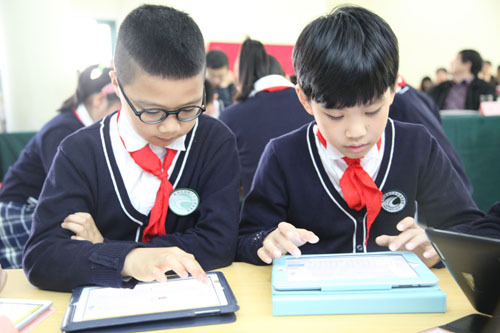
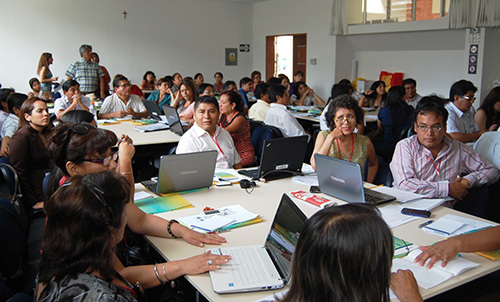

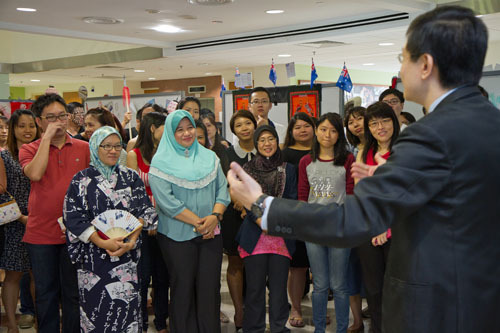
Recent Comments